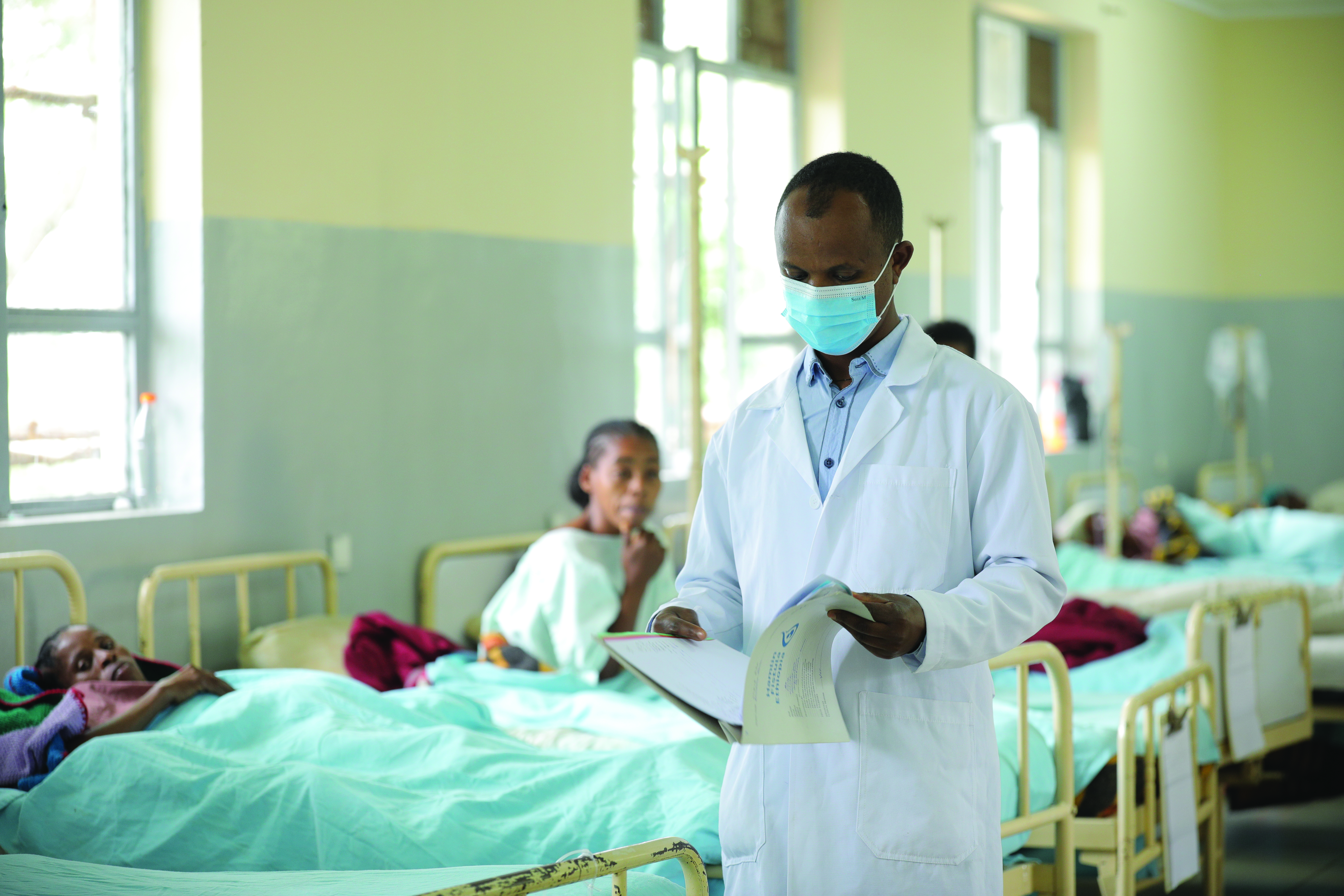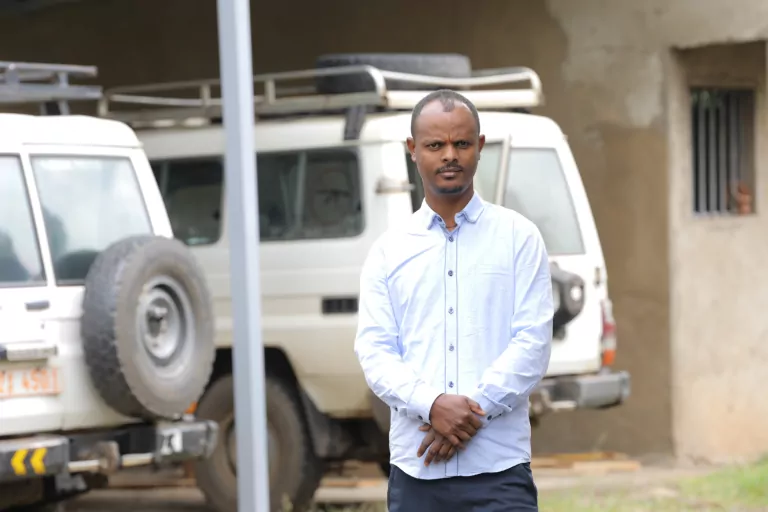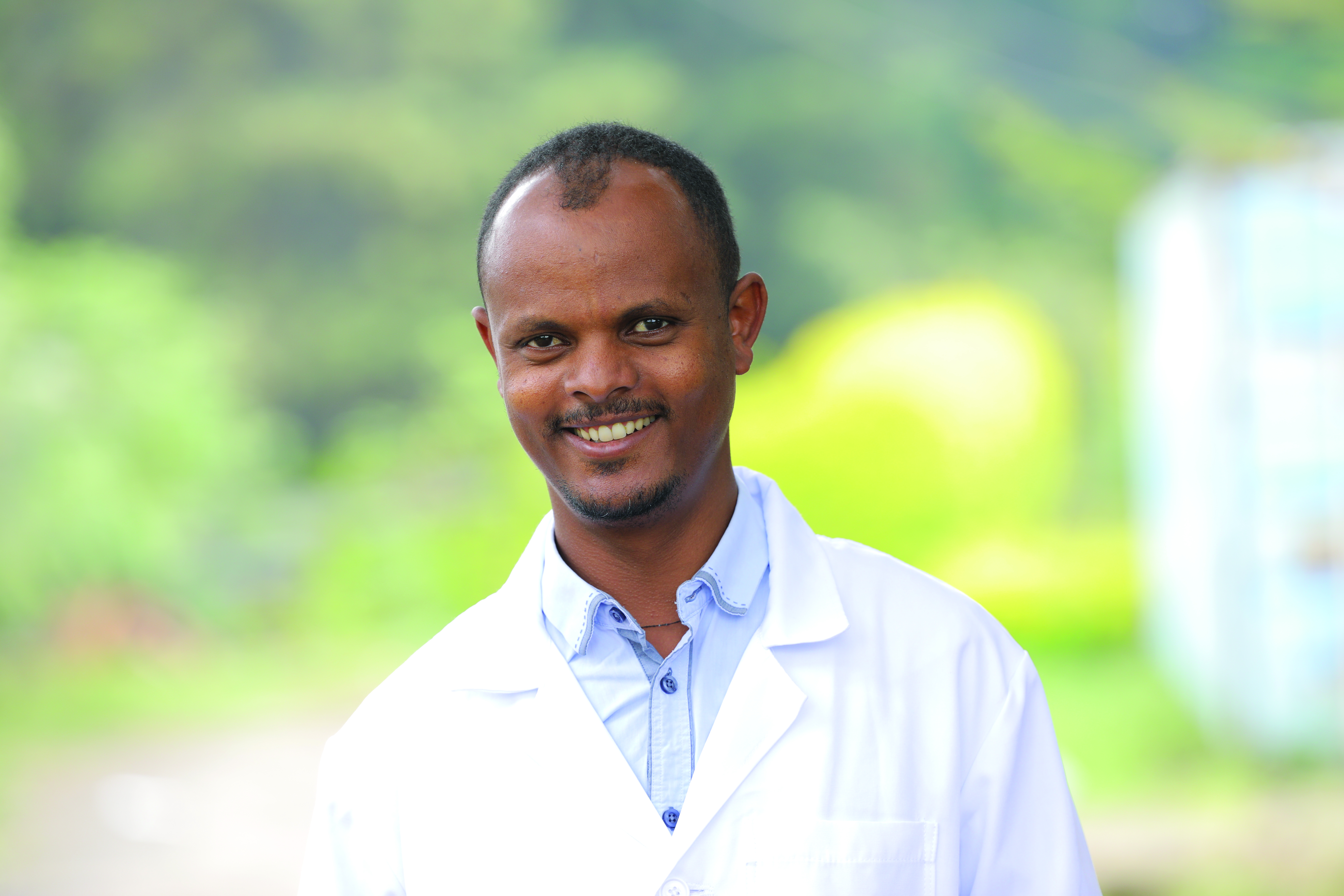In 2020, Hamlin Fistula Ethiopia and UNFPA Ethiopia formed a partnership to combine efforts to improve maternal health outcomes for Ethiopian women living with untreated obstetric fistula injuries.
This three-year joint project focuses on improving access to fistula for Ethiopian women, as well as reaching more women for screening and referral of cervical cancer. The Patient Identification Program is a key part of finding the estimated 31,000 women living hidden with fistula injuries.
Since the project was launched in September 2019, 996 women have been identified and treated.
Behailu is one of the Hamlin Patient Identification Officers. We chatted to him about what being a Patient Identification Officer involves.

Q&A with Behailu
How important is the identification program?
It is an essential program. Over the last two years, we have identified many women with fistulas in the community, many of whom live in remote areas.
How long have you been working as a patient identification officer?
I have been in this role since September 2017.
What is your role as an identification officer?
My primary responsibilities are finding patients in the community and screening them. I also provide patients with and their children education on maternity issues. If people find suspected fistula cases in their community, they call us, and we help bring them to treatment centres.
We also do community awareness campaigns at the market and partner with the government and some local non-government organisations.

How far do you travel?
Very far, sometimes we travel around 600 to 700kms.
For example, if we travel to South Oromeo or other regions from here, it is about 600kms. Our catchment is vast, and we are trying to catch all the areas.
What tools do you use?
We use microphones in the community, and sometimes we use an ambulance with loudspeakers, allowing us to do a large community outreach.
Are houses accessible or do you have to walk to reach communities?
Some areas are challenging to travel by car, we try to travel some distance by motorbike and sometimes by walking.
Any messages for supporters?
I want to thank our donors. All this is made possible by our donors.
Please keep it up!
.
We need your help


